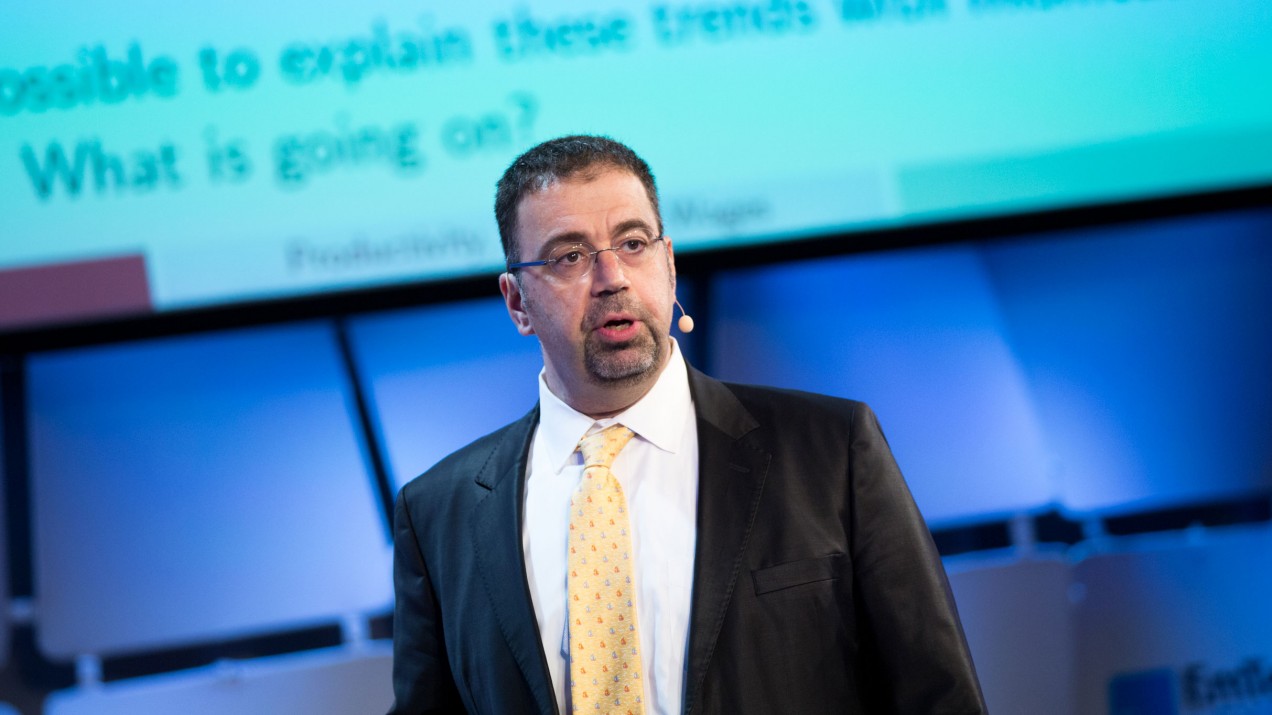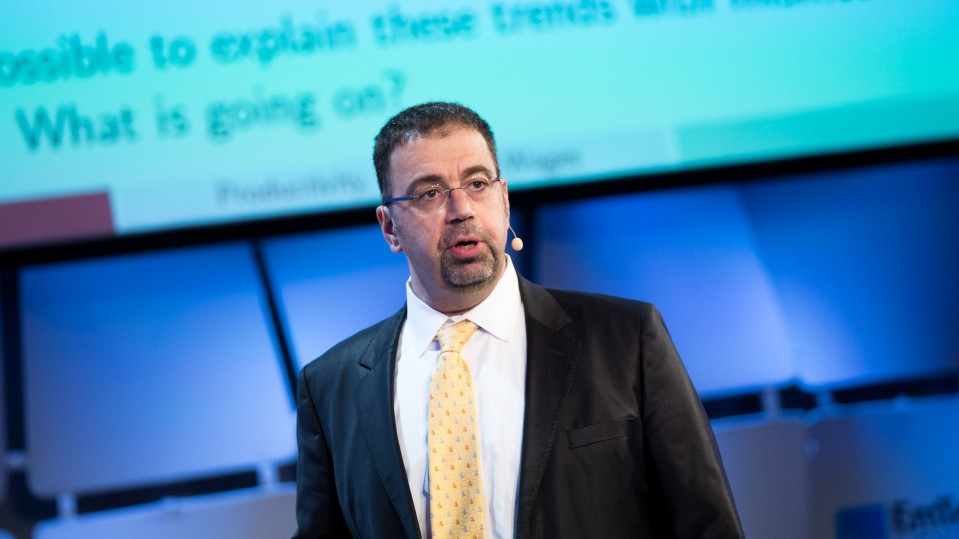

Future of Work / Manufacturing Automation
Economies can’t ignore human needs if they want to benefit from automation
MIT professor Daron Acemoglu: “We are not heading to an economy without human labor anytime soon.”

We are all responsible for ensuring that automation doesn’t ruin many people’s lives.
So says MIT economics professor Daron Acemoglu, a leading voice on the impact of technology on the economy.
Acemoglu spoke yesterday at MIT Technology Review’s EmTech Next conference in Cambridge, Massachusetts. His central message: societies must invest in education and welfare services in order to realize the full benefits of robotics and AI. “It’s not anyone’s responsibility by themselves; it’s our collective responsibility,” he said.
Acemoglu’s onstage presentation showed that technology innovation in recent decades has failed to lift wages and increase productivity in a significant way. His research found that middle-aged men who are high school graduates earn about 35 percent less in real terms than the previous generation of high school graduates did at a comparable age.
One major reason for that discrepancy? Different technologies affect the labor market in different ways. “Enabling technologies”—which enable workers to be more productive in the tasks they were performing before—increase wages and labor demand, according to Acemoglu. Think of the ways that computer-aided-design (CAD) software helps designers draw with more precision.
However, “replacing technologies”—such as the multipurpose, reprogrammable robots now commonplace on automobile assembly lines—take over tasks previously performed by laborers, which can reduce wages and could put people out of work.
That doesn’t mean a robopocalypse is nigh, though: “We have displacement and a failure to create shared prosperity, but we are not heading to an economy without human labor anytime soon.”
Modernizing our institutions will enable more people to benefit from technology gains, Acemoglu contends. He is especially focused on overhauling the education system, which he says is one-size-fits-all and hasn’t changed much since the 19th century. AI can help, he said, by enabling teachers to customize their curricula for different learning styles and types of students. But the government would need to give schools the resources to deploy that technology.
“When companies are laying off workers and not creating jobs, it puts a strain on the entire community,” he said. “But it’s for all of us to think how to contribute [to the solution]. … Companies are not charitable organizations, so the whole community needs to come together.”